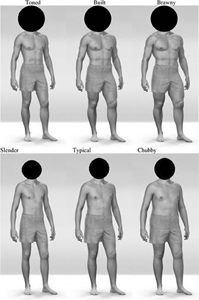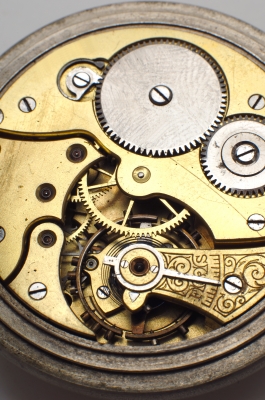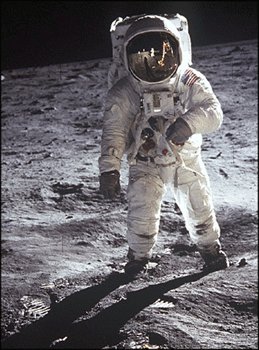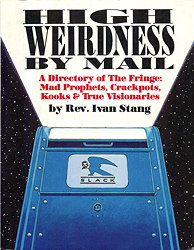Science
Good News!

Posted By: Nethie - Thu Jun 03, 2010 -
Comments (6)
Category: Body, Exercise and Fitness, Health, Science
Integrated Luminosity doubled at CERN
May 17th twitter feed from CERN:Another good weekend for the LHC saw the integrated luminosity for 2010 double. This is a measure of the total number of collisions.
8:04 AM May 17th
The previous post explains they are up to half a billion collisions.
Adding the tally from last weekend's runs, the LHC experiments have observed around half a billion collisions to date.
7:03 AM May 12th
Here's the link for the CERN twitter feed.
http://twitter.com/cern/
Here's another citation about the possible discovery of the decay of a "Strange beauty particle".
http://lhcb-public.web.cern.ch/lhcb-public/
While everyone is worried about the CERN super-collider causing a black-hole, you have to admit that some pretty cool simulations have been created.
For your entertainment an excellent extreme black hole example, which happens to have CERN at its beginning.
Still not as exciting as siphons.
Posted By: gdanea - Wed May 19, 2010 -
Comments (11)
Category: Science
OED “siphon” definition wrong for decades
If you want to find a definition, the Oxford English Dictionary is the mosthttp://www.kidglue.com/2010/05/12/oxford-dictionary-has-been-mis-defining-siphon-for-99-years/
For the inexperienced, I recommend trying to siphon gas from your car for your lawnmower. This is how I discovered the amazing taste of gasoline, not to mention its effect on my digestive tract. Not pretty.

I think these people are being picky -- just because editors thought atmospheric pressure was how siphoning worked (instead of gravity) -- you really to have to change the atmospheric pressure on the end of the tube to get it to start.
Let the arguments begin.
Posted By: gdanea - Thu May 13, 2010 -
Comments (31)
Category: Science
A Robot That Parks Cars
No, not Marvin (ref.), this one is from the Computer Science Department of Stanford University and it not only parks cars, it does so awesomely!The only disappointment is that it doesn't come with a little row of strobing red lights on the front.
Posted By: Dumbfounded - Thu May 13, 2010 -
Comments (10)
Category: Daredevils, Stuntpeople and Thrillseekers, Robots, Science, Technology, Computers, Cars
Weird Science - Towel Folding Robot
Judging by the huge response to what I thought was a fairly large and obscure post about a tiny coincidence, the Hitchhiker's Guide and cutting-edge science is obviously a winning combination.So here is a super special Douglas Adams bonus, a robot folding towels! Okay so that's a bit of a stretch, but it is still quite cool.
Note that this video has been speeded up 50x, in real time it took the robot over an hour and a half to complete this one task. Perhaps it was feeling a little depressed?
Posted By: Dumbfounded - Sat Apr 17, 2010 -
Comments (25)
Category: Boredom, Futurism, Inventions, Robots, Science, Experiments, Technology
Weird Science - Douglas Adams For The Win!

That prevailing view of the universe was thrown, literally, into chaos with the advent of quantum physics, where counter-intuitive results were commonplace, effects could appear to happen before causes (or even without causes) and true randomness abounded. In an effort to return to the saner world of "classical mechanics" many physicists sought to again ascribe the apparent randomness of quantum systems to ignorance, they declared that "hidden variables" currently unknown to science had secretly determined the results. Even Einstein, whose 1905 paper on the photoelectric effect had helped found the new physics was moved to say categorically that "God does not play dice!"
But who was right? In an effort to determine this, in 1964 the physicist John Bell performed a thought experiment whereby pairs of entangled particles (ones where a particular property of the pair is known but each particle's individual contribution is not) are measured simultaneously while a great distance apart from each other. In the classical view either the results would have been determined well in advance of the measurements, in which case they should correlate perfectly, or they are separately determined by the act of measurement, in which case they should not correlate at all. Bell showed with mathematical rigour that in one particular experiment any hidden variable theory should produce a correlation of < 0.5. This became known as the Bell Inequality. At the time there was no practical way to test Bell's hypothesis, and the earliest attempts in 1972 were inconclusive, but by the 1980s the technology had matured to the point that physicists could be very confident that Bell's Inequality had been violated, at its core the quantum universe really was truly and utterly random.
But how random? Consider the quantum equivalent of a coin-toss, one that is completely fair and - as we have discovered - completely random; clearly it is equally likely to end up in only one of two states, the quantum equivalent of "heads" or "tails". We could represent each result with either a 1 or a 0, so the amount of randomness of our quantum coin is said to be "1 bit". But quantum systems are not bound to act like coins, perhaps they are more like dice or roulette wheels, perhaps a quantum system is a random as a lottery draw with literally millions of possible outcomes. It was to answer this question that a team led by S. Pironio of the Laboratoire d’Information Quantique in Brussels set up and ran their own "Bell experiment" and measured with 99% confidence just how random quantum systems are.
So how many bits of outright randomness are created by each quantum interaction? If the title didn't give it away, the answer is...
More in extended >>
Posted By: Dumbfounded - Fri Apr 16, 2010 -
Comments (10)
Category: Ambiguity, Uncertainty and Deliberate Obscurity, Philosophy, Science, Experiments
Creative Editor Fun
Now, why would an editor assign not one but two reporters to this assignment? Sure, the Large Hadron Collider is important science, and even sexy for the layman, in its quest for the Higgs Boson--Oh, now I get it! You want a byline of "Higgins-Borenstein" so it sounds just like the elusive particle!
"Higg-Bo" might never be another Woodward and Bernstein, but they made my day!
Posted By: Paul - Wed Mar 31, 2010 -
Comments (5)
Category: Newspapers, Science, Europe
The Bagel Has Landed!
"That's one small step for man, one giant leap... to infinity and beyond!"
In a survey of 1000 primary and secondary school pupils by Dr Pam Waddell of Birmingham in England, Buzz was the top incorrect answer given to the question of who was the first man on the moon, though other incorrect responses included Richard Branson, Lance Armstrong and Luke Skywalker. Another question, who invented the telephone, drew answers of Charles Darwin, Noel Edmunds and the Queen, while Isaac Newton was variously credited with discovering fire, DNA and America. The results, released just ahead of a British "National Science and Engineering Week" to promote science to schoolchildren, shows that educators there still have a long way to go (Telegraph).
(Image Source: FreeClipArtNow.com)
Posted By: Dumbfounded - Mon Mar 15, 2010 -
Comments (14)
Category: Education, Humor, Science
Al Jarnow
Posted By: Paul - Wed Feb 24, 2010 -
Comments (8)
Category: Science, Television, Children, 1970s
Mystery Meat, Human Style
I was catching a bus the other day, and this box was awaiting transport. If you enlarge the photo, you can see that the label says: PLEASE RUSH/DONATED HUMAN TISSUE/NOT SUITABLE FOR TRANSPLANT.What does one do with human tissue, if not transplant it? Perhaps create a cell-culture line? It's all very mysterious.
As I was taking the photo, a bus driver came by and joked with another employee. "What's that for--the barbecue?"
If anyone has a good explanation, please offer it in the comments!
Posted By: Paul - Mon Feb 15, 2010 -
Comments (12)
Category: Body, Science, Unsolved Mysteries

| Who We Are |
|---|
| Alex Boese Alex is the creator and curator of the Museum of Hoaxes. He's also the author of various weird, non-fiction, science-themed books such as Elephants on Acid and Psychedelic Apes. Paul Di Filippo Paul has been paid to put weird ideas into fictional form for over thirty years, in his career as a noted science fiction writer. He has recently begun blogging on many curious topics with three fellow writers at The Inferior 4+1. Contact Us |






